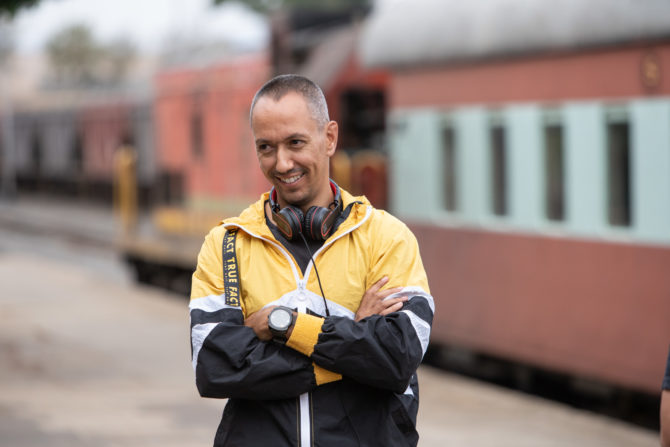 Oliver hermanus
Oliver hermanus
Remember the name Oliver Hermanus, my friends. We have a feeling you will hear it again.
At just 37 years old, Hermanus already has four acclaimed films to his name. Her debut, Shirley Adams, received a positive note on the international film circuit, while her follow-up, the queer-themed drama Beauty, scored the coveted Queer Palm at the Cannes Film Festival. His third film, The Endless River, also became the first South African film to compete for top honors at the Venice Film Festival.
Now, Hermanus returns to two of his most personal themes: queer and South African identity. His film Moffie (the South African equivalent of “f * ggot”), based on the memoir of Andre Carl van der Merwe, follows the story of Nicholas (Kai Luke Brummer), a young enlisted white South African soldier. for military service in 1981 border war between South Africa and Angola. During basic training, he encounters a violent atmosphere of racism and homophobia. Nicholas even watches two of his fellow soldiers being publicly denounced and tortured in front of the screaming crowds. For Nicholas, who begins to recognize his attraction to his roommate Dylan (Ryan de Villiers), hostility towards homosexuals becomes a war in itself.
We caught Hermanus during pre-production tasks for his latest film (more on that later) to discuss the film, a changing South Africa, and how scenes of violence and racism challenged his own strength of will. Moffie opens in theaters and On Demand April 9.
How did you first hear about André Carl van der Merwe’s memoirs? Is its story well known in South Africa?
I have met the producers. We talked about it. I had never read it; they sent it to me. It impacted me so I said I would make the movie.
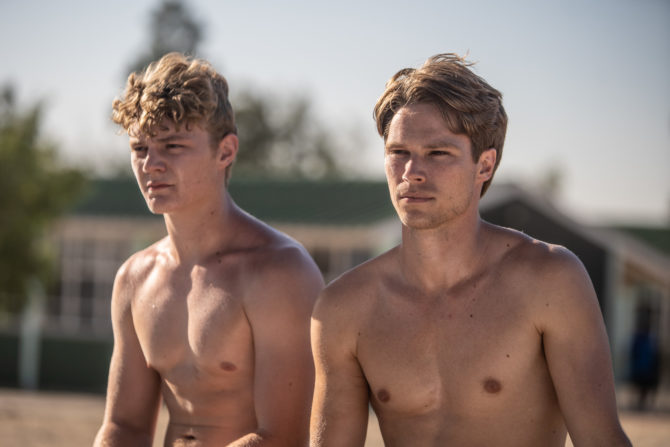
What was your approach to the story? Do you see the film as a love story? Or is it the brutalization of innocence?
When I first read it, I thought about what would make it truly personal to me. It was very difficult because I was not born at the time and I am not a white South African. I did not have the experience of being enlisted. My father was not enlisted. So the connector was that this was a gay teenager who didn’t know he was gay until he had a moment of identification. And this moment occurs during the army’s most horrific moment during the war with Angola. So, I guess my entry, at the end, was the word “moffie”; how I relate to the word, what the word has meant in my life and how it has become something that has helped me identify my own journey of myself. In adapting the book to the film, I was looking for a way to tell this story that seemed personal to me.
On the subject of brutality, when you make a movie like this that involves a lot of violence and especially psychological torture of your main characters, first of all, what kind of mood do you keep on set to create the atmosphere of a scene? How do you prepare, psychologically, to direct a scene?
I think my attitude towards these complex moments – and I have made complex moments in all of my films – is that what I’m looking for as a director is a sense of honesty and reality in these moments. . This is what makes them difficult to pull: you have to resist the impulse to soften it or bypass it. You have to kind of push in, lean in. There is a moment, always on a set, when you shoot this kind of scenes, you feel that the team, in particular, is uncomfortable.
Yes.
You have to get there because you want people to respond immediately. The film would fail if those moments were bypassed by a director who didn’t want to make others feel uncomfortable. I communicate very clearly to the crew what the day or the scene will be like, and of course, they will have read it. There has to be agreement from all the players and the team that what we’re trying to do is create a real moment as much as we can, that’s for sure.
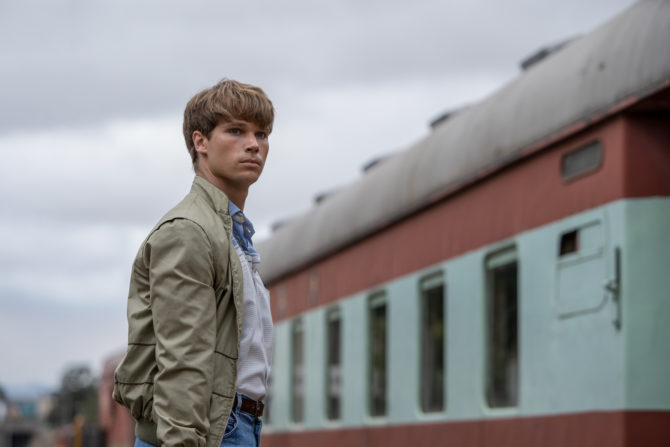 Kai Luke Brummer as Nicholas
Kai Luke Brummer as Nicholas
The other problem is your distribution. Many directors that I could name at the moment have been accused of pushing their actors too far, to the point of suffering real psychological damage. How do you protect your actors from this?
They are always conversations. There has to be a trust, a safe space. They must be able to detach themselves and remember that it is the experience of the character, not the experience of themselves. I think that’s as much clarity that you can give an actor in the way they approach those moments. That doesn’t mean it’s not difficult for them to do it. We have scenes in this film that show acts of racism, where a white actor commits an act of racism and the black actor experiences an act of racism. It is a negotiation with these two actors, because for both, it is very difficult. They both buy into the purpose of the stage – it’s something they want to affect the audience. It might change the mind of someone in the audience, it might affect a member of the audience in a way that’s for the best.
Absolutely.
I need to ask questions about a particular sequence. It’s the flashback of the pool, where young Nicolas is ashamed and accused of masturbating in the showers. The entire scene plays out seamlessly and lasts for several minutes, which is impressive in itself. I also know of other interviews which are not part of André van der Merwe’s story; it’s part of your story. First, how do you develop an approach to a scene like this? Why was it so important to play without a break?
When I was developing the film, I needed to get to the heart of the story. Any writer / director has to do this, and you have to get to the scene that somehow plays the subtext of the film’s goal. This scene is really the subtext of our film. This is the scene that unlocks and includes the repression and removal of himself from the character. It also reveals the nature of this word “moffie” and how it works. So getting that into the movie and using an experience from my own life, it’s a very liberating and liberating experience. There is something about this scene that I feel very privileged to have achieved. Not only can I breathe my own heart and soul into my film, but it’s also very cathartic.
That’s wonderful.
The technical side of it, the one-take shot, was a simple choice. I wanted the audience to experience this in real time as an episode unfolding. The voltage of the stage must be in real time; that’s the only way you feel it as a memory. It is a unique and continuous experience of a young person. So it was very clear to me at the beginning. I also knew by introducing it to my one-take-wonder cinematographer that he would be instantly captivated by the task of shooting the film.
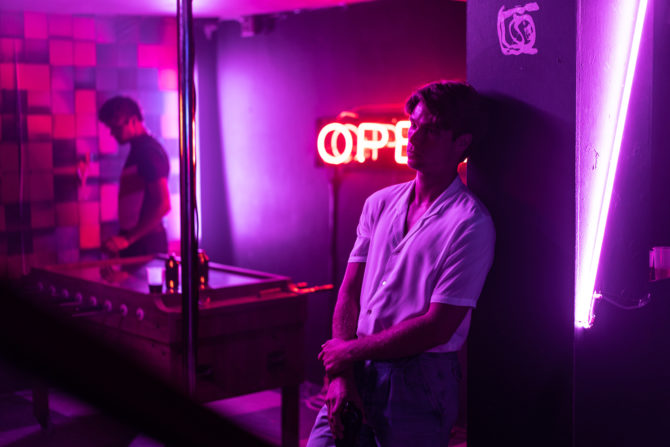
It’s a fantastic streak. This film fits very well with your filmography, in that it deals with South African characters, and it deals with gay male identity. Your movie Beauty, which I wish I had seen, did it too, and also did it in the context of an almost obsessive and taboo relationship. What attracts you to these topics?
I think it’s probably just your late twenties / early thirties. I think at that time in my life the themes of sexuality and identity and beauty being a curse and a crime, are things that were on my mind. I appreciate my attitude as a filmmaker as a person who does personal work. It is an artistic sensibility. I want my job to be the way I train. Therefore Moffie will probably be the last film I make about sexuality in the context of South Africa. Maybe what I gravitate towards in the future will be another relationship that I gravitate towards with my identity. I feel very lucky to have been able to do a job that allows me to introspect in this way.
How does making a movie like this change you? What clarity does it offer?
I mean, there’s something about making a movie – being able to tell a story to audiences in the dark all over the world is a weird, otherworldly experience. It might be something that you don’t even want to tell anyone in your own life. I never even told my parents, when I did Beauty-they saw it without any understanding of what it was about. There’s something about the privilege of having a platform, of having a collective audience taking your stories that is incredibly wonderful. It is something to cherish and protect. I am very aware of this privilege. So I think my relationship with choosing stories and making movies is what I want to tell others so that I can connect with other people in a meaningful way.
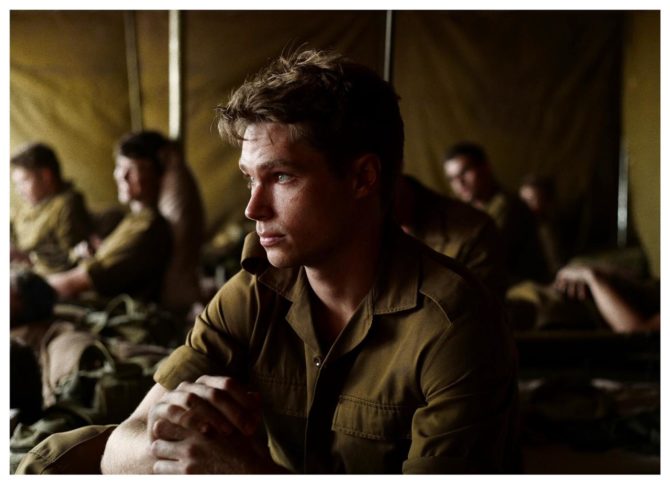
As a South African yourself, I want to know a bit more about your experience. The British pushed this idea that being gay, being non-white, and being a communist was somehow the worst thing you could be. There are a lot of things in this statement. Have attitudes changed? Does the pain ever go away?
The first thing you say about the change in South Africa is that I wouldn’t be sitting here talking to you today, having had the opportunity to make the films that I made or tell the stories that I have without this change. Historically my family has been oppressed by the apartheid regime, so I am the embodiment of change, of someone who has been entitled to equal opportunities and freedoms and access to education. . Luck, luck, desire, personal desire – this is the demonstration of how society has changed. Of course, we still face practical problems of trying to become a post-racial country, of trying to question our history. But at a fundamental level, it’s always important to point out how bad things used to be. I have never been turned down as a person for most of my life, which I cannot say about my mom or dad.
So what are you working on right now?
I am currently, dangerously, about to make a remake of a Kurusawa movie called Ikiru.
Oh my God. Is that so?
We will be shooting the film in London this summer.
It is exciting.
And scary. I drink a lot.
Moffie opens in theaters and On Demand April 9.



